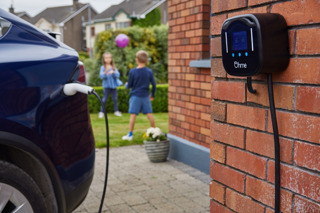David Hytch, technical director at PlusCharge
The recent excitement surrounding electric vehicles (EVs) in the fleet market is difficult to ignore.
Fleet managers struggle to strike the proper balance between charging infrastructure, convenience, and cost even though it is evident that EVs have the potential to lower emissions, increase efficiency, and lower operating costs.
Fleet managers who want to migrate from fossil fuels to electric or hydrogen vehicles must consider the capabilities and demands of their fleets, and despite their various objectives and requirements, the whole industry agrees on one thing: there aren't enough charging stations.
The availability of acceptable EVs with a sufficient range is restricted, and the shortage of charge points is a major deterrent for fleet managers considering the transition because there aren't nearly enough public charging stations, and many of those that are available aren't in good working condition.
Also, fleets may find it challenging to rely on the public charging network for their regular operations because of its potential for unreliability and awkward placement.
There is, however, hope. Fleets can shift away from the unreliable and inconvenient public charging network and toward a more reliable and cost-effective charging solution based on their own property while still being able to access the public network as needed by investing in full-service EV charging.
Fleets may charge their vehicles whenever it is convenient for them thanks to full-service EV charging, which gives them access to their own private charging networks.
By doing this, fleets won't have to rely on ageing public infrastructure and will always have access to the charging stations they require.
In addition, full-service EV charging allows fleets to decide how they wish to charge their vehicles.
This includes the choice of how much and when to take power from the grid, allowing for the charging of some cars more quickly than others, as well as how much of the energy they use to be renewable, thus assisting in the reduction of their carbon footprint.
It enables fleet managers to link their route planning with the in-cab charging network, see instantly how much energy is being consumed by each driver, at what time, by what vehicle, and over what route, and maximise their earnings.
The ability to handle driver and customer service inquiries, complete analysis of the usage and performance of the existing charge points, and improved planning for the future are all made possible by full-service charging, which offers open interfaces to enable connection of various types of charge points and permits the exchange of data with other company systems.
For fleets wishing to move to EVs, full-service EV charging is the best option overall.
In addition to giving customers dependable access to charging stations, it also gives them the freedom to choose how they want to charge their cars, which lowers costs and emissions.
Full-service EV charging should be at the top of fleet managers' lists of criteria, not just the apparent cheapest option if they plan to move to EVs.
You can make sure that your fleet will have the charging infrastructure it needs to operate efficiently if you have dependable access to charge points and the flexibility to customise your charging solution.
> Interested in comparing electric vehicle data? Check out our EV tool.
> Interested in ensuring the efficient use of EVs. Check out our dedicated editorial sections: Insight & policy | EV news | Charging & infrastructure | Costs & incentives | Benefit-in-kind | EV case studies | EV road tests























Login to comment
Comments
No comments have been made yet.